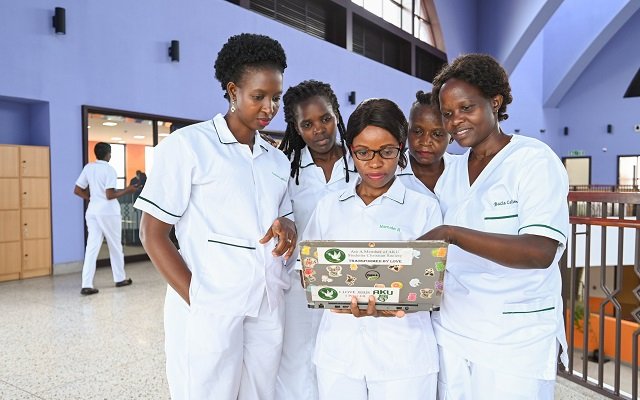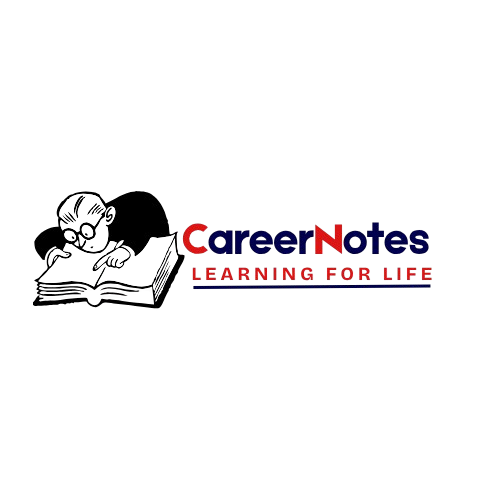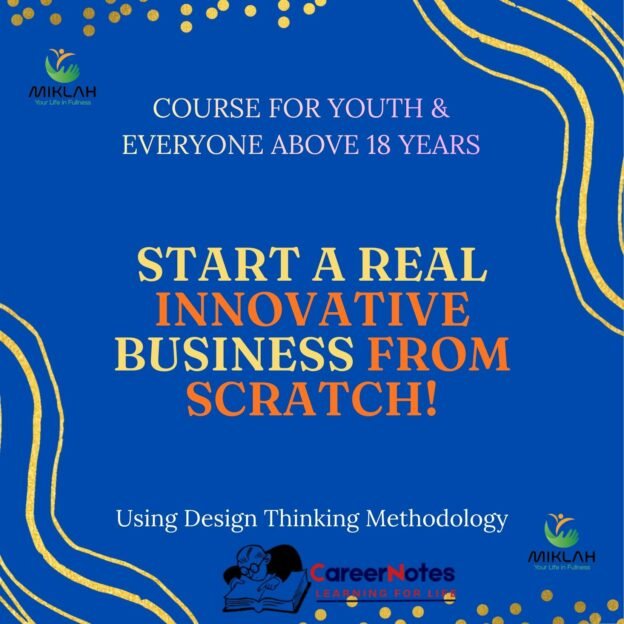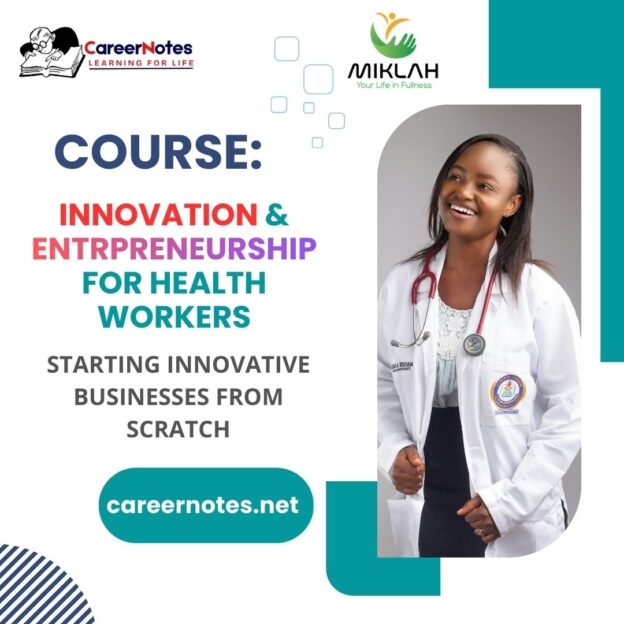How to Build a Personal Brand as a Health Sciences Student (Before You Graduate)

Personal Brand: In today’s highly competitive professional landscape, a strong academic record alone is no longer sufficient to stand out. For students in Uganda, particularly those in the health sciences (nurses, doctors, pharmacists, laboratory technologists, etc.), building a robust personal brand before graduation is an essential strategy for career advancement and professional recognition. In this brief article, I’ll share with you the practical and effective steps you’ll need to take to stand out. Are you ready? Let’s go!
Personal Brand: Meaning & Why It’s Important!

By definition, a personal brand is the unique combination of skills, experiences, and personality that you want the world to see and remember you by. It’s how you differentiate yourself and communicate your value. Personal branding involves defining and promoting your unique skills, qualities, values and passions to construct a positive reputation and online brand identity for yourself. It is an intentional and strategic practice, building the narrative of your professional life.
Specifically for health science students like nurses, doctors, pharmacists, laboratory technicians, midwives, and public health students, this means:
- Building credibility within the healthcare community
- Showcasing your academic achievements and clinical competencies
- Demonstrating your understanding of Uganda’s health challenges or the challenges of wherever you are interested! (By the way, at this rate, your interests should not be Uganda alone, but anywhere!)
- Highlighting your commitment to ethical healthcare practice
See an amazing definition from one of the richest guys: “Your brand is what people say about you when you’re not in the room.” — Jeff Bezos.
Why is a Personal brand important for a student?
We surely have already answered this in the introduction. As a student, you want to be different and stand out for any opportunities, both within the school and shortly after graduation. Specifically, a personal brand is important for these reasons:
- Early Career Differentiation: In a field where technical competence is assumed, your personal brand helps you stand out among peers competing for limited positions, whether internship, volunteering, or job. By the way, do you know how to get your first job after school? Watch this video; only 4 steps!
- Professional Network Building: Healthcare is relationship-driven. A strong personal brand helps you connect with mentors, colleagues, and potential employers.
- Trust and Credibility: Patients and colleagues need to trust healthcare professionals. Building your brand early establishes credibility and professionalism. Yeah, this is even more critical if you later decide to start your own business (clinic, drug shop, pharmacy, or whatever!)
- Career Advancement: Strong personal brands lead to leadership opportunities, speaking engagements, and career progression.
Enough with the talks, right? Let’s jump into the steps or the action of building a personal brand!
Step-by-Step Guide to Building Your Brand as a Student
Step 1. Self-Discovery: Define Your Unique Value Proposition
Yes, personal branding starts with knowing who you are and what you want. In other words, define your identity and purpose or niche. As a health sciences student, reflect on what makes you unique in your field. Are you passionate about patient care, pharmaceutical innovation, or community health outreach? Self-assessment helps you articulate your professional identity.
For example, personally, even though my first college studies were in nursing, I truly preferred and love community health and outreaches. As such, following my first employment, I immediately went for further studies in public health and health promotion. So, whatever course you are taking, there must be a special area of your major interest. Figure it out!
How do you figure it out?
- Identify Your Strengths and Passions: In project management, this is usually called SWOT (Strengths, Weaknesses, Opportunities, Threats) analysis. In other words, what are you naturally good at? What genuinely interests you within your field? For a nursing student, this might be a passion for community health, while a medical student might be driven by research in infectious diseases.
- Determine Your Values: What principles guide your actions? Integrity, compassion, innovation, teamwork? These values should underpin your brand.
- Define Your Unique Value Proposition (UVP) or niche: What makes you different? What specific problems do you solve or what unique benefits do you offer? For instance, a pharmacy student might specialize in pharmacovigilance, or a laboratory technologist might have a knack for developing efficient diagnostic protocols.
- Craft a Personal Brand Statement: This is a concise summary of who you are, what you do, and who you serve. For example: “An aspiring public health physician dedicated to improving maternal and child health outcomes in rural Ugandan communities through innovative outreach programs.” You can even use this statement on your social media profiles. Check out mine on LinkedIn here.
Step 2: Build a Professional Online Presence
In Uganda, where digital connectivity is growing, an online presence is a powerful tool for personal branding. Platforms like LinkedIn, Twitter, Facebook, Instagram, TikTok, and professional blogs allow health sciences students to showcase their expertise and connect with industry professionals. In Uganda today, recruiters and mentors look you up online. Use it wisely.
- Optimize Your LinkedIn Profile: Create a professional LinkedIn profile with a clear headline, such as “Public Health Student Passionate about Medicine Formulation | ISBAT University.” Include your academic projects, internships or placements for nurses, and certifications, such as those from hands-on training programs. Use a professional headshot and ensure consistency across platforms.
- Engage on Social Media: Share insights on healthcare topics relevant to Uganda, like addressing medication shortages or improving patient care in rural areas. For example, a medical student could tweet about innovations in telemedicine, tagging local health organizations. Comment on and talk about issues you are currently studying.
- Create a Portfolio: Develop a personal website or portfolio to showcase your projects. A laboratory technology student might highlight a research project on diagnostic tools, linking it to Uganda’s public health needs. A nurse can create a blog on nutrition, tips for mothers or babies, living a healthy life in old age, or any other topic of interest. Do not just sit.
Personally, i wrote my first book while in high school, and my articles started appearing in the school magazine then. When I joined nursing college, I kept writing a lot more, and even sang some songs. At the University, all my writings exploded into something much more beautiful and big: MIKLAH LIFE.
By the way, make it a point to have your website or blog! Ugandan professionals have this laziness where you find that even a professor or an outstanding professional in society does not write anything. This is very disturbing! It should stop. Open up a blog. Share your insights. Write something that others can refer to. Come on!
You want help with a blog or personal website for your brand and all your writings? Get help now!
Step 3: Network and Showcase Your Work
Okay, now you know who you are and what you need. You have set up your professional social media accounts, or even have a personal website or blog. It is time to show all of that to the world! In Uganda and anywhere else, opportunities move through networks and relationships. Some people say your network is networth!
Make professional and friendly relationships with mentors, colleagues and peers, and other professionals, especially the ones doing what you plan to do.
NB: For this need, we have made it simple here. On CareerNotes, you will find friends, mentors, peers, and all kinds of professionals. Just connect with them, chat with them in their inboxes. Make friends.
But there are other ways to find people and connect:
- Join Professional Associations: Engage with organizations like the Uganda Nurses and Midwives Union or the Pharmaceutical Society of Uganda. Attend their events to meet practitioners and learn about industry trends.
- Leverage Campus Resources: Participate in university programs like. ISBAT university always has those entrepreneurship and innovation events, rotarian and healthy related events, and some job board events. Every university has a lot of events going on. Participate. Importantly, participate in events that are even beyond your university. How do I stress this? If an event is free, in your locality, and is safe and relevant, just be there. Get out!
- Volunteer in Community Health: Volunteer at local clinics or participate in health outreach programs in Kampala or rural areas. This demonstrates your commitment to Uganda’s healthcare challenges and builds your reputation. Yes, you can even volunteer while still a student.
Wait! Also, learn how to introduce yourself: “Hi, I’m Brian, a third-year lab student at Mbarara University. I admire your work in TB diagnostics—can I ask how you got your internship?”
Step 4. Build experience & Showcase achievement (certificates)
According to Kolb’s 1984 experiential learning theory, Practical experience builds professional competence, which is a key component of personal branding for health sciences students. The question is, how do you, as a student, build experience or skills to show off during your networking? There are some ways! Mostly, it is through the networks we shared above, taking on some courses that are free, and documenting your experiences well with passion.
- Actionable Steps:
- Document Your Work: Create a portfolio of your clinical rotations, lab projects, or research. For example, a nursing student might document a successful community health campaign addressing malaria prevention. Again, this is easy and organized if you have a website or social media pages.
- Seek Internships: Pursue internships at hospitals or pharmacies in Kampala. An internship at Mulago Hospital, for instance, can showcase your ability to handle real-world healthcare challenges. For student tutors, volunteer as a teacher at a nursing school. I volunteered as a tutor at Mulago Nursing School around 2015/2016. When I applied for a job at IIHAS, I added that I have some experience in teaching and quoted Mulago Nursing School.
- Earn Certifications: Obtain certifications in areas like Basic Life Support (BLS) or Good Clinical Practice (GCP) to enhance your credibility. Now, there are many opportunities here. You can use online platforms like Coursera, WHO, and UN learning platforms, LinkedIn Learning, or even our courses when they come up! I have earned a lot of certificates, mostly with the YALI network, Microsoft and Google, WHO emergency basics, and UN Learns.
Step 5. Create and Share Valuable Content
Content creation allows you to position yourself as a thought leader in Uganda’s healthcare sector. By sharing knowledge on topics like public health or life for nurses, employment for doctors, or whatever topic you are comfortable with, you can build credibility and attract opportunities.
- Actionable Steps:
- Write Blogs or Articles: Start a blog on topics like “Improving Access to Medicines in Rural Uganda” or contribute to university publications. Share these on LinkedIn or Twitter to reach a wider audience.
- Engage in Research: Participate in research projects at your university or attend a conference and share some insights. Listen, when you attend events, speak. And when you speak, speak sense. People will know you.
- Educate Your Peers: Offer tutoring or workshops on health sciences topics, such as nursing, emergency, mental health for nurses, etc. This builds your reputation as a knowledgeable peer.
Scholarly Insight: Content creation aligns with Bandura’s (1977) social learning theory, which suggests that sharing knowledge enhances one’s influence and credibility within a professional community.
Step 6. Align Your Brand with Uganda & Global needs
While it is critical to start with Uganda, I strongly suggest that today’s students should focus ahead and beyond Uganda as well. The world is now a global village, and we cannot innovate for the Ugandan context or market alone. Additionally, jobs and opportunities continue to be scarce in Uganda. Shouldn’t we entertain the possibility of working somewhere other than Uganda?
Align your experience, write-ups, and content with the global and trending health challenges. As of today, there are trending concerns like outbreaks and pandemics like COVID-19 and the HIV cure or prevention. Also, topics around aging and non-communicable diseases are trendy. How about AI in health or digital health? Pause! Think about digital health for a moment, please! How about climate change and health? Yes, the World Health Organization and the UN, and the overall global village are currently pumping funds into climate-health initiatives, where are you?
For Uganda, there is more! Uganda’s healthcare system faces challenges like medication shortages, rural access disparities, and a need for skilled professionals. Tailoring your brand to address these issues can make you highly relevant to employers and communities. Do you need further one-on-one guidance? Connect and talk to any CareerNotes Mentor! See all mentors here.
- Actionable Steps:
- Focus on Local and global Impact: Develop projects or initiatives that address local needs, such as a pharmacy student creating a campaign for affordable generics or a nurse student creating a campaign or project on climate-health. For climate-health, we have a lot going on at Miklah Life. You can join us here.
- Engage with SDGs: Align your brand with Sustainable Development Goals (SDGs) like SDG 3 (Good Health and Well-Being) by participating in community health initiatives. Again, here we can guide you. See our efforts here: https://miklahlife.com/sacrepreneur/
- Stay Informed: Keep up with Uganda’s health policies and innovations, such as the push for local pharmaceutical production, to position yourself as a forward-thinking professional or the recent announcements to include a new HIV-prevention drug, lenacapavir, on Uganda essential list for free access.
📌 Final Thoughts: Start Now, Grow Daily
You don’t need to be famous to have a personal brand. Just be:
- Intentional: Choose what to stand for.
- Consistent: Let your actions align with your message.
- Visible: Show up where opportunities find you.
Use your time as a student wisely—what you build now becomes your launchpad for the future.






Responses